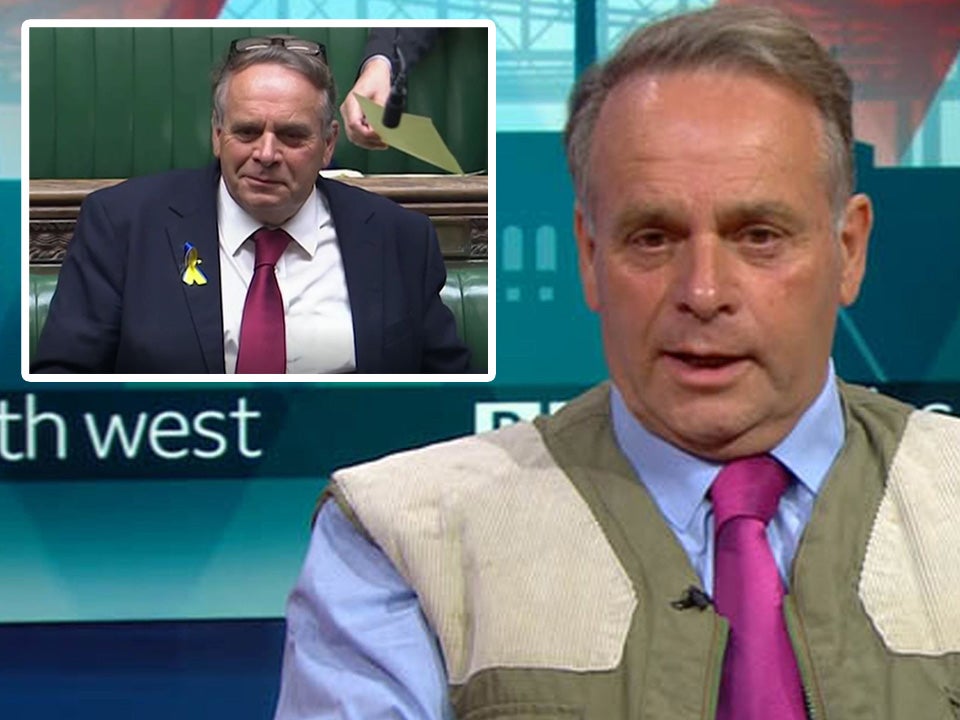Have hasty elections given us a cohort of below-par MPs?
There is no shortage in parliamentary history of MPs who have turned out to be liars or bullies or bribe-takers or drunks, writes Andrew Woodcock


In some of the least diplomatic comments ever made by a minister about his fellow MPs, leader of the Commons Mark Spencer has suggested that the new recruits elected in 2017 and 2019 are, frankly, not up to scratch.
The last two elections, he said, were sprung on the political parties by surprise, and they were forced to find candidates in a hurry to fight seats all over the country. As a result, he implied, a lot of people sneaked through who wouldn’t have made the grade in normal times. Things would be better after the next election – probably in 2024 – when the party machines will have had plenty of time to get the right people into winnable seats.
His comments came in response to the disgrace of Tory MP Imran Ahmad Khan, who was forced to resign as MP for Wakefield less than three years after his election in 2019, after being found guilty of sexually assaulting a 15-year-old boy.
Now, Mr Spencer rather overlooks the fact that the boy in question complained to the Conservatives about the assault after hearing of his selection, meaning the party had all the information it needed to conduct due diligence before the election took place. And he also overlooks the fact that neither of the two snap elections of the past five years actually had to take place when they did, but were called early to suit the political interests of the Tory leaders at the time, first Theresa May and then Boris Johnson.
But is there any truth in his suggestion that the hasty polls have meant a generation of below-par MPs?
Certainly, the rash of scandals of recent years don’t suggest that Westminster’s miscreants are limited to its newer members. Owen Paterson, who quit in disgrace after being found guilty of paid lobbying, had been in the Commons since 1997 and was one of the house’s longest-serving members. Neil Parish, who resigned his seat after watching porn in the chamber, had been an MP since 2010 and an MEP for a decade before that.
Now there have been some spectacular falls from grace among the newer intakes – Labour’s Fiona Onasanya (2017) was jailed for lying about a speeding offence, and Claudia Webbe (2019) was found guilty of harassing another woman. But there is no shortage in parliamentary history of MPs who have turned out to be liars or bullies or bribe-takers or drunks.
On the whole, the arrival of more than 230 new MPs – 93 in 2017 and 140 in 2019 – has been a breath of fresh air for Westminster, bringing a speedy generational change – and a massive increase in ethnic and gender diversity - to a chamber where longer-serving members often hang around for years after they have anything very useful to say.
The class of 2019, in particular, have been notably independent-minded and undaunted by the arcane procedures and practices which often baffle new arrivals on the green benches.
Because of the Covid pandemic, of course, they spent much of their first two years as MPs away from Westminster and its cliques, and away from the close scrutiny of party whips. Some older MPs regard them as a result as a near-feral generation which has not yet been groomed into the habits of party discipline.
And the accident of political circumstance means that many of the newbies have been forced into speaking their own minds rather than following the party line.
To keep up to speed with all the latest opinions and comment, sign up to our free weekly Voices Dispatches newsletter by clicking here
On the Labour benches, there are Labour left-wingers selected under Jeremy Corbyn who suddenly find their leadership offering a distinctly different agenda. Among the Tories, there are dozens of MPs in red wall seats in the Midlands and the north which the party has never held before and where local electorates want a very different kind of conservatism from that on offer in the leafy shires.
Some have quickly become thorns in the side of their own leaders – it was no surprise when 2019 Tories were at the heart of early plotting to oust Boris Johnson over Partygate. But equally there have been others who have risen swiftly within their parties, with 2017-ers like Conservative minister Kemi Badenoch, Lib Dem leadership candidate Layla Moran or Labour shadow cabinet member Preet Gill all seen as rising stars.
They may well have made life difficult for their leaders from time to time, but there is no doubt that the new generation are making their mark on Westminster.
Yours,
Andrew Woodcock
Political editor






Join our commenting forum
Join thought-provoking conversations, follow other Independent readers and see their replies
Comments